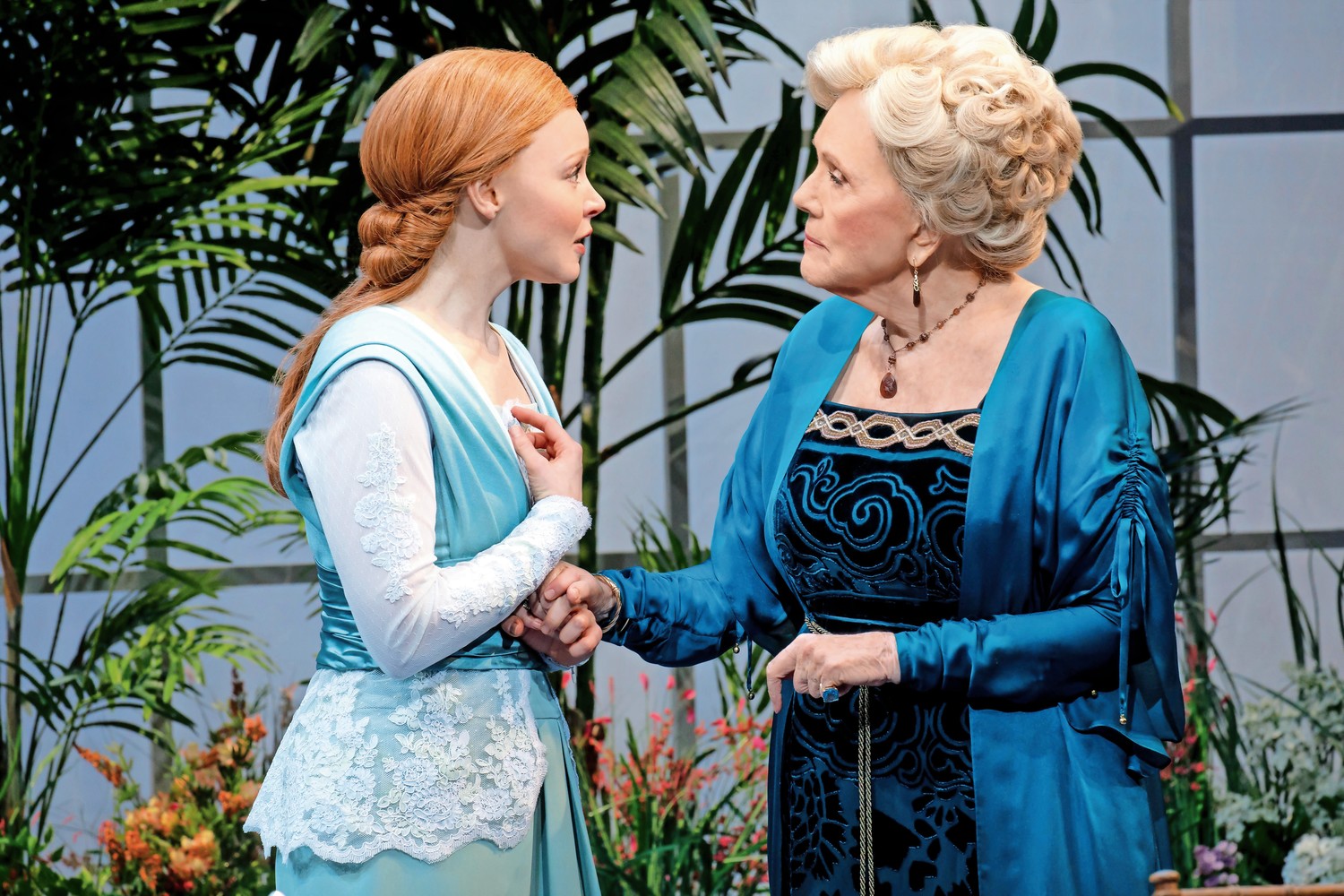‘My Fair Lady’ — Soaring from ground up
There’s a cornucopia of pleasure in the Lincoln Center Theater’s revival of “My Fair Lady.” The performances match the exquisite score, the orchestrations are lush, and the designs that fill the Vivian Beaumont stage serve the sumptuous concept of Bartlett Sher’s direction.
Underneath the satisfaction of witnessing all this luxurious craft on display, however, is the powerful magnet of the past. They just don’t make them like this anymore.
“My Fair Lady” has the allure of a youthful romance, with all the joy of innocence unblemished, and the pull of a time before the barbarians stormed the palace with synthesizers and other such vulgarities.
Here, we have it all: A full orchestra, an overture, a chorus, a real story, a romance, and conflicts of culture and class. As the lights went down and the music rose, I could not help but see the red “Columbia” label spinning on the old RCA Victor. For many millions, good old vinyl was the introduction to the repertoire, and to the giants: “South Pacific,” “West Side Story,” “My Fair Lady.”
And so, when the orchestra began to trace through the score, the pleasures of bygone hours flashed back. And with that, the expectations of great performances, wit and song.
And all anticipation was met and conquered. This production soars with a brio all its own, one mighty enough to blast away the echoes of the past.
Lauren Ambrose’s Eliza Doolittle is a feisty passionate changeling with a voice of gold. Harry Hadden-Paton makes his Henry Higgins a conflicted perfectionist so blind to his own obstinacy that he cannot yield to the love kindled right before his eyes. Both performers glide through seamless transitions in and out of song, and their bargain of fate enhances the natural rise of conflict between their London worlds.
The supporting players are standouts. Diana Rigg graces Mrs. Higgins with a regal flair. Allan Corduner’s Pickering is worthy foil to Higgins, who dares transform a flower girl into a luminary of British society. As Eliza’s wastrel father, the terrific Norbert Leo Butz summons up plenty of cockney verve.
The large cast dodges briskly through chorus and character assignments, always on point and pitch. The look overall reflects the restraint that we expect from the British drawing room, and the liberated alternative of the music hall.
It is Ms. Ambrose’s Eliza who triumphs over all traditional expectations. The production leans into the “Me Too” moment in a daring takeaway from the usual redemptive fadeout. We see the heartbreak that lurks beneath a great love.
And with the lush costumes of Catherine Zuber to complement Michael Yeargan’s grand set design, this production overflows with ingenuity and panache. The choreography by Christopher Gattelli is crispness writ large.
A few oddball choices mar the fun. Manu Narayan turns the crucial role of Professor Zoltan into a grotesque, and similar choices blemish the rousing “Get Me to the Church on Time,” which seems oddly transported away from Edwardian London, over to a mash-up with demimondes far and wide.
These artistic hiccups do not diminish the overall grandeur, and the clarity of both Ms. Ambrose and Mr. Hadden-Paton win the day. Love was never so sweet and so complicated as in “My Fair Lady.”






